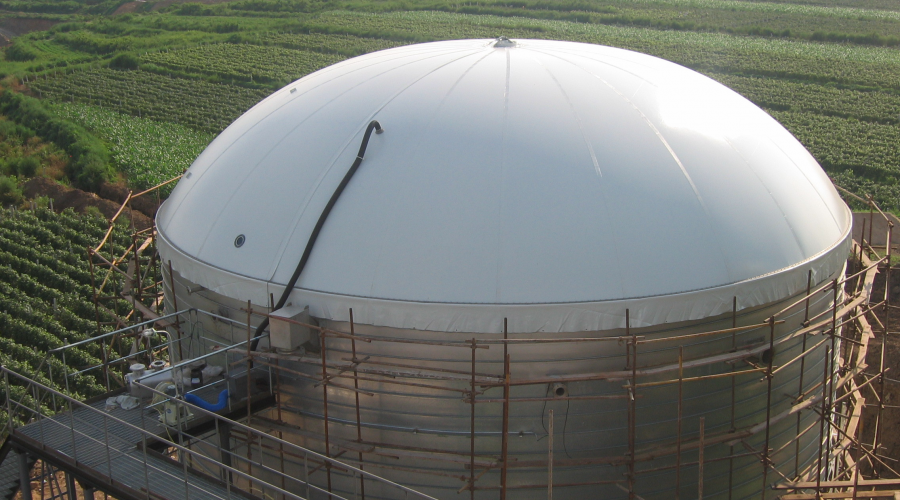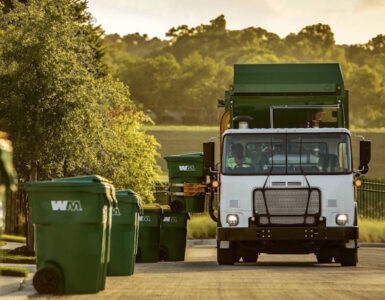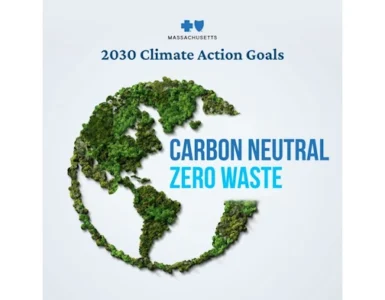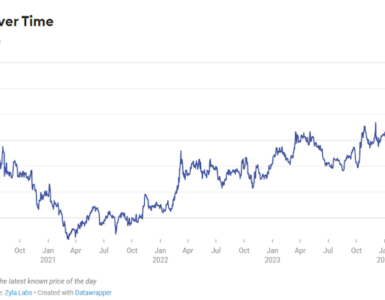The Eco-Safe Digestor is an all-new type of food waste disposal machine, being distributed by a schoolmate of Tesla, Paypal and SpaceX founder Elon Musk.
Alex Giacchetti, chief operating officer at GreenComm Environmental, says that the Eco-Safe Digestor is capable of turning food waste into ‘grey water’ at the rate of a staggering 1,130 kg in 24 hours.
Giacchetti goes on to explain that this could help businesses with high levels of food waste or high emissions costs save a significant amount of cash; possibly around £40,000 for truly prolific users.
Working by heating up the leftovers to around 40 degrees Celsius using heated water and breaking that concoction down using super-powered enzymes, Giacchetti says that 360 kilograms of waste will result in around a bath’s worth of water.
Does that water require special treatment? Not especially, no. The Eco-Safe Digestor can be emptied down a normal drain, or handled separately to be used for irrigation and other ‘grey water’ applications.
After over 300 of these machines have gone online in the United States, the very first was turned on in the UK this week at London’s five star Athenaeum Hotel. A launch of sorts was held for the device, to prove that for £20,000 users will get a digester that is practically odor and noise-less, and as energy-hungry as a fridge.
However, the device at present doesn’t harness the gas produced by the enzymes in the same way an Anaerobic Digester might. The result is the waste water from an Eco-Safe Digestor is just that; waste water.
Whilst food waste in an anaerobic digester can go on to produce a significant supply of bio gas, that can be fed back into the national grid.
The Eco-Safe Digestor might well be the future for businesses or facilities that are too remote for regular food waste collections – and the ideal would be a machine that combines the benefits of both.
Zero Waste Scotland has congratulated businesses up and down Scotland for a year of successful food waste collections from businesses, and urged them to make 2021 even better for food recycling in Scotland.
Exactly one year ago, the Waste (Scotland) Regulations came into effect that made food waste collections mandatory for businesses over a certain size – and Scottish Environment Secretary Richard Lochhead has taken the opportunity to congratulate businesses on a successful contribution to the country’s waste economy.
“One year on from introduction of our landmark waste regulations, I am delighted that our waste is being increasingly seen as a resource which can bring economic benefit to communities, as well as reducing our environmental impact.
“Our regulations channel food waste that would otherwise end up in landfill into the hands of growing companies like Keenan Recycling, who can convert the material into compost, and create jobs in the process.”
Lochhead also reminded businesses that this is an ever-evolving plan, following a roadmap that aims to make Scotland one of the most environmentally friendly countries in the world, and that businesses should use this year to get ahead of the game for the next phase of food waste recycling requirements launching on the 1st of January 2021.
This includes the catchment of the regulations expanding from businesses which produce more than 50kg food waste per week to include any business producing more than 5kg of food waste per week.
Zero Waste Scotland chief executive Iain Gulland said: “Business are already reaping the benefits of the waste regulations… Earlier this year we announced the results of an independent survey which showed that 83% of businesses were aware of the regulations and almost 90% of those were confident that they were compliant.
“There is of course still a challenge for us to reach businesses that could benefit from advice on how they need to implement the regulations. We can help businesses deliver their obligations through our free Resource Efficient Scotland service.
“I would also urge companies to check if their waste contractor has signed up to the voluntary Resource Sector Commitment. By using a contractor which has signed up to the commitment, businesses can be assured that they will be provided with a high quality recycling service which is compliant with the regulations.”
A complex microcosm of retailers, food outlets, staff and public – shopping centres can be tricky environments to ensure proper food waste management practices are upheld.















